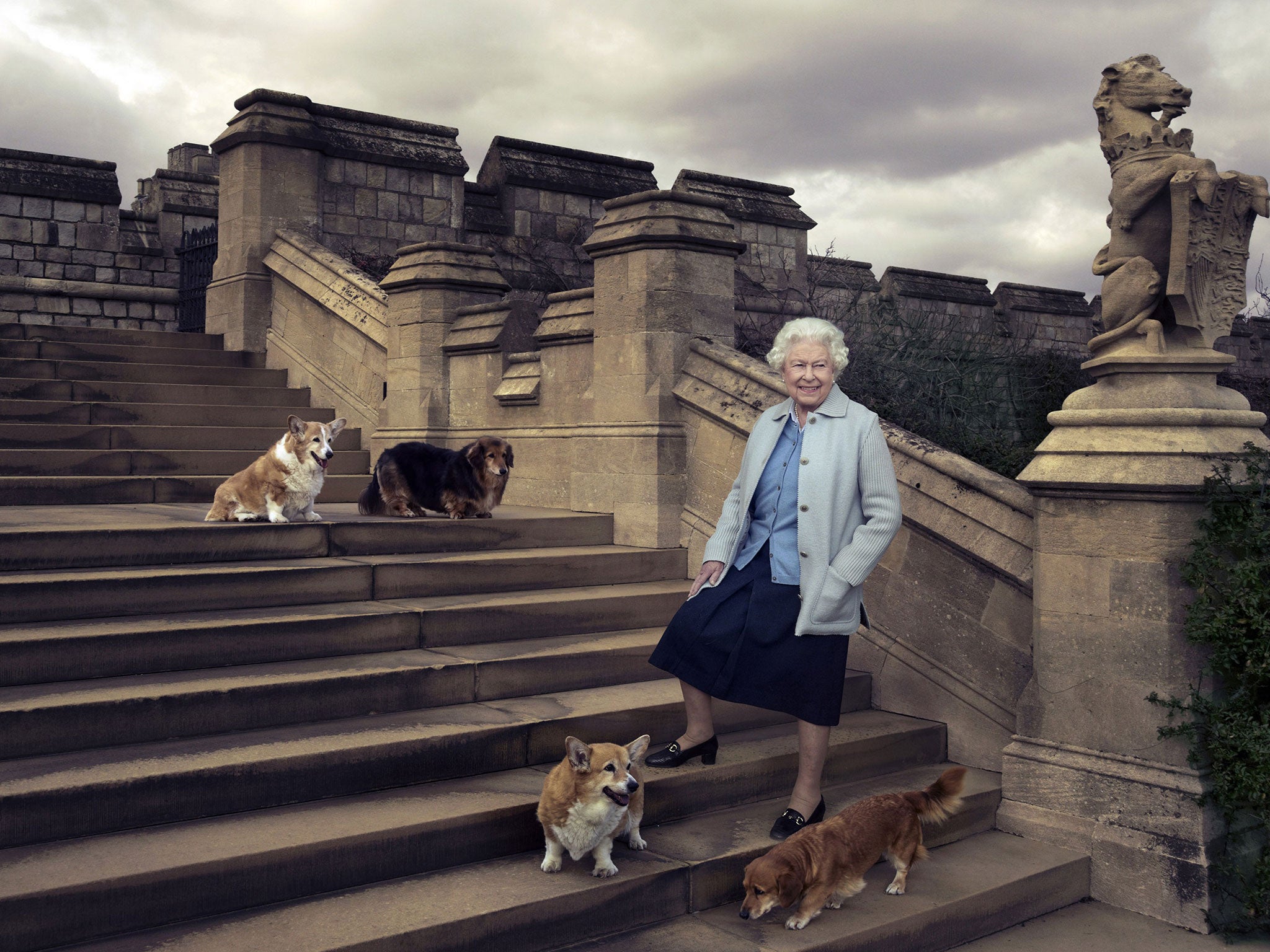The Queen at 90: the principle of power by heredity is a difficult fit for the 21st century
The Queen’s sense of purpose and destiny resonates with the British public. The bunting will flutter on

Your support helps us to tell the story
From reproductive rights to climate change to Big Tech, The Independent is on the ground when the story is developing. Whether it's investigating the financials of Elon Musk's pro-Trump PAC or producing our latest documentary, 'The A Word', which shines a light on the American women fighting for reproductive rights, we know how important it is to parse out the facts from the messaging.
At such a critical moment in US history, we need reporters on the ground. Your donation allows us to keep sending journalists to speak to both sides of the story.
The Independent is trusted by Americans across the entire political spectrum. And unlike many other quality news outlets, we choose not to lock Americans out of our reporting and analysis with paywalls. We believe quality journalism should be available to everyone, paid for by those who can afford it.
Your support makes all the difference.The Queen’s 90th birthday has been widely celebrated throughout the UK, with flags and bunting out in force. She is, without question, a remarkable individual and – despite a great many tests during the course of her long reign – she has retained considerable public support.
A recent poll found 66 per cent of respondents felt favourably towards the monarch; a further 20 per cent had a neutral view and just one in 10 were unfavourable. By a wide margin, she is the member of the Royal Family most likely to be regarded by the populace as setting an example of public service.
Sure enough, it is hard not to admire the Queen’s dedication to a role which initially she seemed unlikely ever to fill. The abdication crisis in 1936 which propelled her father, George VI, to the throne also thrust her into position as heir presumptive – but even then few would have anticipated that she would be crowned herself just sixteen years later. The idea of a monarch aged 26 is hard to fathom for today’s generation.
In those early years, goodwill towards the House of Windsor was not in short supply, at least in Great Britain. During periods of political turbulence, the Queen remained above the fray. Abroad meanwhile, she became the monarch who oversaw the slow but sure dismantling of the British Empire, recognising the untenability of colonial rule – though maintaining the deepest affection for the preservation of ties through the auspices of the Commonwealth.
The two decades after the Silver Jubilee in 1977 brought more difficult times. Personal tragedy, such as the assassination of Lord Mountbatten, and family scandals – notably the failed marriages of her children – culminated in the annus horribilis of 1992. The death five years later of Princess Diana, and the extraordinary response it drew from the public, led many to conclude that the monarch had become mortally separated from her citizens.
Indeed, when recalling the rank and widespread antipathy which was directed towards the Royal Family in that period, its apparent strength today is all the more incredible. The younger generation, seemingly more down to earth and largely scandal-free (or, in Prince Harry’s, case scandal-immune), have aided the family’s cause. Yet it is above all the Queen’s singular sense of purpose and destiny which continues to be the guiding light for the Windsors, and which resonates most strongly with the British public.
Moreover, the mere fact of Queen Elizabeth’s longevity and the relative stability of her reign provide stark counterpoints to the rapid changes witnessed elsewhere in the world and in our modern lives. She is a heartening link to a past many of us don’t remember. To put it another way, Her Majesty is a metaphorical comfort blanket, like Countryfile, scones or county cricket. Britain without any of them would somehow not feel quite the same.
Not everyone shares the rosy view of course. For some, the Queen’s personal qualities cannot gloss over the questionable nature of the monarchy as an institution; the principle of power and privilege by virtue of heredity is arguably a difficult fit with 21st Century Britain. Still, the Queen has been wise to recognise the importance of embracing the times and has done much to modernise the institution she represents. Her successors will benefit most – for thanks to the current incumbent, it seems as if the bunting will flutter on for some time to come.
Join our commenting forum
Join thought-provoking conversations, follow other Independent readers and see their replies
Comments